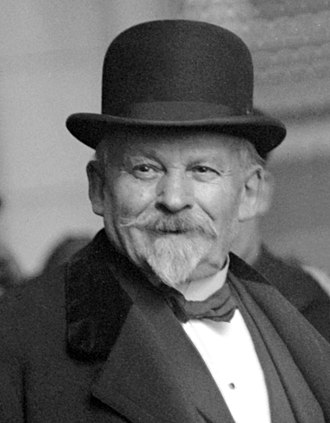A BIG Lie! But does it still work?
You’ve possibly heard this story before…
During the hot summer of 1957, in a New Jersey movie theater the words “Drink Coca-Cola” and “Hungry? Eat Popcorn” were flashed on the screen of Academy award winning film ‘Picnic’ by Market Researcher James Vicary.
Undetectable to the conscious mind, lasting just 1/3000th of a second, in his press release, Vicary stated that 45,699 people were exposed to these subliminal projections and the reported results of this were increased sales of Coke by 18.1% and popcorn by 57.8% (notice how the decimal place makes it more believable…!).
Subliminal Messaging
Outraged at this news the US and United Kingdom banned subliminal advertising.
However… in 1962 when challenged to repeat his experiment and failing to gain any change in sales, Vicary confessed, admitting that he hadn't actually conducted the experiment at all.
In truth he invented the whole thing to attract business to his failing marketing agency.
Subliminal messaging was deliberately concocted by a marketing agency for profit… and it hasn’t stopped people cashing in on it since.

WHAT!!!
No, wait, dude hold on… you’re tellin’ me Subliminal Recordings aren’t real? But, but, but… millions are sold every year, in fact:
“I used subliminal recordings and lost 28kg in 30 minutes, my confidence grew back and I now feel like superman”
This kind of (or more real sounding) anecdotal evidence for subliminal recordings (based on the fact that wily marketer James Vicary made ‘em up) could be attributed to placebo…
The Placebo Effect and how to make it work for you
Placebo is a well studied phenomena, almost all drugs are tested against placebos… there are two interesting things worth noting here.
1: the severity (or importance) of the condition
2: the type of placebo
Let me go sideways here for a moment… see, a headache or a life threatening condition are different. If the new ‘miracle’ drug (Placebo) doesn’t cure my headache… well, life goes on. The same cannot be said about life threatening conditions, right.
A person has way more invested in the drug/placebo working if it’s a life threatening, or super important condition, right.
How invested or how important it is to the person, increases the effectiveness of a placebo! Wild right? If you REALLY need it to work, it has a higher chance of working than if "it would be nice if it worked"... think about how this also translates to success.
Second, the delivery method. Tablets, capsules, injections… and even placebo surgery! Yep it’s a real thing. In that order they have more effect. A simple ‘cheap’ looking tablet is the least effective, whereas a 'sham operation' performed by a surgeon has the highest placebo effect.
This is again about value, this time its the value invested in the person giving the placebo i.e the Doctor.
My experiments carried out somewhere around autumn of 2015 confirm this. I offered a subliminal recording for more confidence... for free, as part of an experiment, all upfront and totally legit. They had nothing on them, other than some music.
The feedback I received from this ‘experiment’ was that almost every person commented about the positive effect on their confidence. Clearly demonstrating that the One (hypnotic or very Liminal) Suggestion “This recording will give you more confidence” at the beginning helped them more than hundreds of 'subliminal suggestions' that weren’t there!
Simply put, the expectation of becoming more confident coupled with the ‘procedure’ (relaxing and listing to an audio) created the desired effect they wanted.
Subliminal = Placebo
So how is this working...? and more importantly, what can YOU do to make it work for YOU?
Subconscious Priming
Priming, meaning association or the ‘seeding an idea’. Priming is a very different thing altogether. A form of this you’ll know as 'product placement'. Sometimes product placement is very obvious: Tom Cruise wore Ray Ban sunglasses in the film Top Gun resulting in the huge popularity and increased sales of the tinted eye ware.
“Monkey see, monkey do”

James Bonds heroic Aston Martin driving, hugely boosted the car sales. This lead to Don McLaughlan, (PR agent from Lotus) to hatch a cunning plan to get his brand of car in the films...
Knowing of preparations for a new 007 adventure, he parked a pre-series model of the Lotus Esprit directly in front of the Pinewood Studios in London.
Producer Albert Broccoli saw the car and instantly wanted the futuristic looking (this was the 70's) vehicle in the movie. The film 'The Spy Who Loved Me' was a box-office success and the Lotus Esprit sold like hotcakes.
Another form of priming is…
Semantic Priming
Cat and ___. Chances are you completed the sentience ‘dog’, or mouse (the point is you didn't say balloon).
This is a very basic example of Semantic (meaning words) Priming. Priming can also be described as a ‘psychological phenomenon where the exposure of a certain stimulus, influences the behaviour of a person, even without the individuals awareness that the thing they got exposed too has influenced their behaviour'.
The eyes have it.
A “by your honour” collection jar was set up for shared milk in a lunch cafeteria, next to it was an image that showed a picture of a pair of human eyes staring at the person about to take a sip of bovine-bodily-fluid. On another day it was alternated with a picture of flowers.

The watching eyes have it, gathering more donations than the picture of nature finest art (Visual External Stimulus).
During another experiment people were asked to focus on a shameful thought (visual, auditory and kinaesthetic Internal Stimulus). Then they were told to fill in the blank letter: SO_P. The vast majority completed the word SOAP rather than SOUP. The conclusion was, feeling ‘morally dirty’ triggers the desire to cleanse.
Conclusion: Sounds, images, smells etc (external or internal) do effect us. Obvious right.
If the visual cortex, via the eyes, receives the information (although you didn’t ‘notice’ it), or the audio cortex, via the ears, registers the input, then the stimulus goes in and ‘Primes’ the mind.
Subliminal comes from the Latin. Sub meaning below and limen (or liminal) meaning threshold. Below the threshold of awareness.
If it’s there, even if you didn’t ‘notice’ it. Priming occurs.
If it’s there, but it’s hidden i.e. sub-liminal*. No Priming happens. *remember Vicary made it up.
Let us move to the deliciously intertwined topic of affirmations…
Affirmations
“Everyday in everyway I’m getting better and better.”
This classic of ‘Affirmation lore’ was written in the early 20th Century by French psychologist and pharmacist Emile Coue… but does it really work?
Beware of absolutes. Or to quote Obi-Wan from Star Wars “Only the Sith deal in Absolutes.” (Kind of ironic that the word ‘only’ is an absolute!)
Absolutes (or Universal Quantifiers) e.g: Only, Always, Never, Every time… very rarely are ‘absolutely’ true. Take the teenagers classic of: “Everyone at school has an iPad, I need one too”, all of the kids have one… really!?! Or the frustrated entrepreneur “I never get a break” really, they've never had a break!?!
Think back to the French classes you took at school years ago, every moment you’re getting further away from those classes, are you really getting better at speaking that language? Of course not. Beware of absolutes! You know them to be false, so does your deeper mind.
While the famed Affirmation sounds great, certainly it is positively phrased and set in the present tense etc. It simply isn’t true, not ‘everything’ is getting better and you know it. This is one of the reasons affirmations fail.

Émile Coué de la Châtaigneraie, psychologist, pharmacist and supporter of enviously fantastic mustache styling, observed that the health of his patients got significantly better when he enthusiastically told them about the effectiveness of his treatment, compared to those he simply gave a treatment to.
This again taps into belief/placebo. He affirmed, ‘primed’, suggested, (gave them a linguistic placebo) and it produced results.
Mr Coué went on to study Hypnosis with Ambroise-Auguste Liébeault considered the father of modern hypnotherapy.
“We can make, to ourselves, very much stronger suggestions than anyone else can, whoever that person may be.” Émile Coué
Making Affirmations work for you
Coué maintained that "Curing someone of their troubles requires a change in their unconscious thought, which can be achieved only by using our imagination". By consciously using autosuggestion, he observed that his patients could cure themselves more efficiently by replacing their "thought of illness" with a new "thought of cure".
It’s all well and good telling yourself a thing, but if deep down you don’t believe it, if in your heart you know it’s not true, it’s not going to come through for you. This is why the imagination (the full use of thoughts and feelings) is important.
Neuroplasticity, getting fancy now lol or simply put, 'your brain’s ability to learn, change and adapt' reveals what makes affirmations work and how to make them more effective...
Five points to making affirmations work for you
Point 1: It has to be in your ‘Sphere of Availability’, it has to be something that you know you can achieve/is possible (becoming a billionaire/best author in the world is ‘possible’ but start with millionaire or completing your first book to begin with). You have to be able to ‘feel’ it and get a good feeling about it.
Point 2: Set it in the Present tense. “I’m open to new ideas, opportunities and ready to adapt to new beliefs that are aligning with my core values and desires.”
Point 3: Create a Clear Mental Image (CMI) of it. The phrase CMI like ‘visualise’ is a little misleading… you need to be able to see it, hear it and feel it, like it’s already part of your being/experience. This activates the same areas of the brain that actually experiencing the things would.
Point 4: Repetition*. Make your routine constant. Make it a practice* not as a theory. You don’t get a six-pack by exercising just once.
Point 5: Gratitude. Add some energy to it... “emotion is energy in motion.” Most importantly *Enjoy the repetition :))
“An affirmation can work because it has the ability to program your mind into believing the stated concept."
Ronald Alexander Ph.D.

Conclusion:
1: When written in the positive, as though they've already happened, about something you believe is possible for you to achieve (at this time) affirmations do work.
2: Auto-liminal-Suggestion does work when the sensory gathering apparatus (eyes, ears etc) are receiving the information, even if the 'conscious' mind is distracted or doesn't notice the stimulus.
3: You know you the best. You know what you need better than anyone else. You're the best author for your affirmations.
We plant a tree for every hypnosis recording you buy. Find Out More. Help Us Plant More... Buy From The Store.
Since 2009 all of our website have been Carbon Neutral & powered by renewable energy. Good for you and kind to our Planet.
